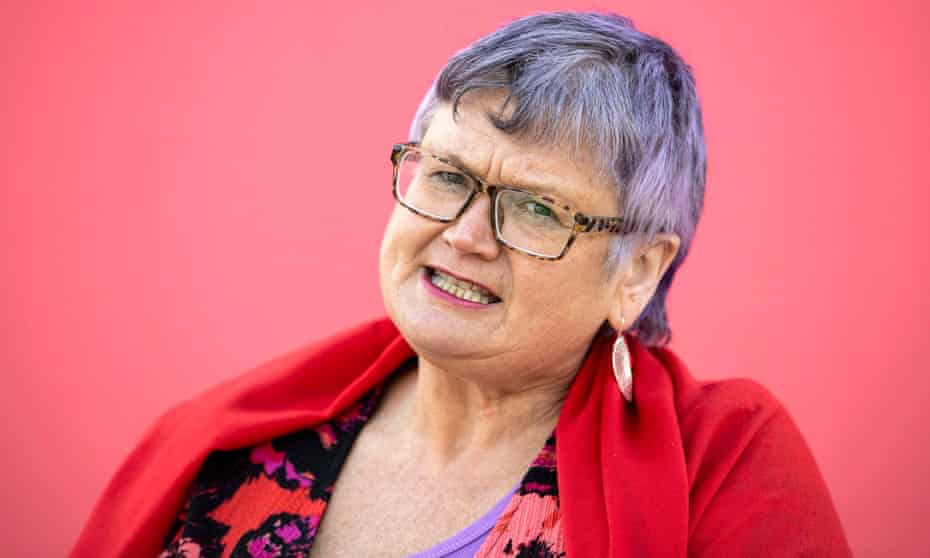As World Menopause Day is marked, Labour’s Carolyn Harris says she is determined to bring change for those left to suffer

Carolyn Harris remembers hearing her mother and aunties talking about “the change”. She was told to make a cup of tea and sent out of the room. “I was 36!” hoots the Labour MP for Swansea East. “Later I said to my mum, ‘What did you think you were protecting me from? It was always going to happen to me too’.”
Harris is now at the vanguard of a movement determined to smash the remnants of that taboo, pushing a private member’s bill to turn up the volume on a debate about the menopause that is growing louder by the day.
As an increasing number of countries, businesses and individuals mark World Menopause Day on Monday, Harris says she is ready to shame whoever stands in the way of progress.
“You don’t get change unless you ask for it, and you demand it, or you put people in a position where they’re going to look like right bastards if they don’t do something about it,” she says with typical candour. “I want to be in a position where the government can’t say no and where companies won’t say no.”
Harris will lead a small army of supporters to Parliament Square in London before her bill, which is due to be heard on the 29 October, to demand free prescriptions for hormone replacement therapy in England – already available in Scotland and Wales. The government is said to be “interested” in the bill, with Harris adding that she has cross-party support from dozens of MPs including the Tory grandees Bernard and Anne Jenkin, alongside Caroline Nokes and Tim Loughton, as well as Jess Phillips, Diane Abbott and Sarah Champion in the Labour ranks.
“In the last two years the narrative has completely changed,” says Harris, who adds that since the private members bill was announced she’s had calls from countries from Canada and the US, to Australia and Japan.
“People are waking up to the fact that we have to find a better way of supporting women through the menopause,” she says. “Women are enhanced coming through this process, but only if they get the support they need.”
The evidence suggests they all too often don’t. There are more than 13 million currently experiencing menopause or perimenopause in the UK. Menopause campaigners argue that medical sexism and a lack of training means many women are left to suffer the symptoms of menopause – which can include depression, anxiety, insomnia and brain fog as well as hot flushes.
The UK could be losing 14m work days a year related to the menopause, according to recent research. One in four women who experience menopausal symptoms – many at the top of their career – consider leaving their job.
Many more businesses are joining the menopause revolution, says Harris – pointing to companies such as Cult Beauty which has introduced comprehensive policies around miscarriage, IVF, pregnancy and the menopause and hosted Harris at an event last week. Alexia Inge, the company’s co-chief executive, says that with a 78% female workforce it was a moral and business imperative. “As a nation we’re actually losing people from the workforce at a time when we need people to work later in life,” she says. “Even if you take the really important social care elements away, we need to support people to go through this.”
But it’s not enough to have a policy, says Harris. “This can’t be a box-ticking exercise, companies and the government really have to genuinely want to help these workers.”
Harris’s own experience with the menopause was brutal. Twenty years after losing her eight-year-old son in a road traffic accident she blamed herself for not processing her grief when she was hit by a deep depression. “It took me six years, having conversations with women, for me to realise I was going through the menopause,” she says.
Now she wants to use her voice in parliament to speak up for those who she says are often just too tired to fight. “There’s a hell of a lot of women my age, working in supermarkets in shops and they are exhausted,” she says. “A lot of those women are going through the menopause but they are not being treated, because in 2021 there is still not enough understanding about a condition that affects 51% of the population.”
With Harris leading the charge, with an army of women alongside her, that may be starting to change. “I don’t throw stones – I’ll work with anyone to get this done,” she says. “But if I’ve got to throw boulders to get what I want, I will.”
(Story Credit; The Guardian Online)
